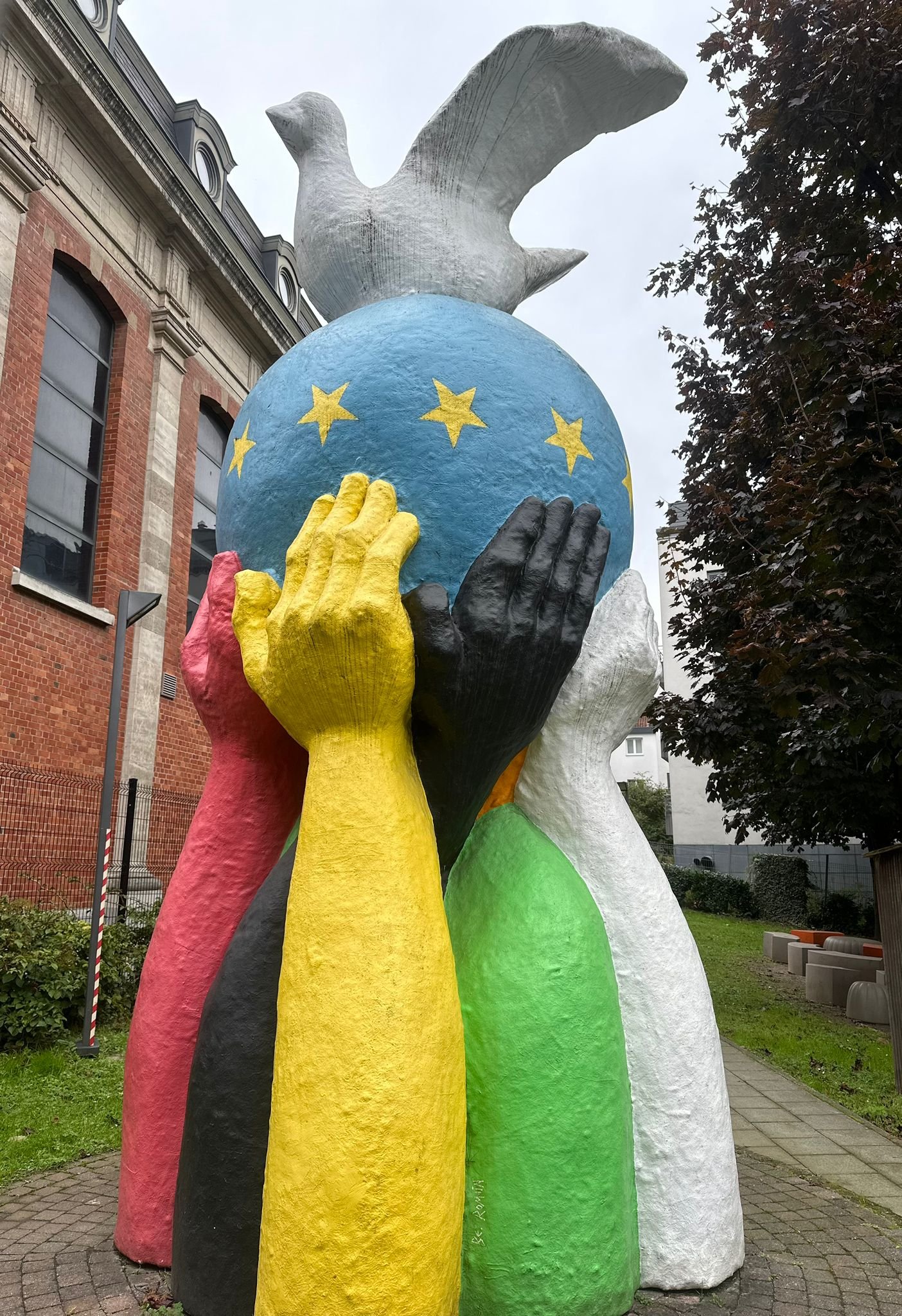By: Veronica Broskovetz, Social Policy intern at Homeless Entrepreneur
Please TAKE THIS SURVEY
Who is Responsible for Homelessness in Brussels? Government, Corporate or the People
I am a social policy intern for the international nonprofit, Homeless Entrepreneur (HE). We work with homeless people, who want to be active, working citizens again. The three main programs we provide are: the Helpline via WhatsApp (+34 697 877 089), Voices, and the HELP Program. All of these contribute to empowering people made of potential out of homelessness with a job, home, and, of course, ambition.
We aim to inspire change on a macro level to reduce global homelessness. One of HE’s major projects is the EU Report of Assistance v. Empowerment, which will be presented to the EU Parliament. To do so we are focusing on 12 strategically chosen cities within the EU to gather greater research and data as well as connect with donors, interns, partners, volunteers and governmental officials. My focus throughout this internship has been on the city of Brussels, whose homeless problem has exponentially increased since 2010. Throughout my research and interviews, I couldn’t help but wonder “who should take responsibility for this homeless population that is not going to disappear overnight?”
Anti-homeless architecture in Brussels: Photo by Andrew Funk (Homeless Entrepreneur)
Finding information on homelessness and using that information to determine who is homeless, and why, in various regions was relatively easy for me. According to a field study and data by DIOGENES, composed by Bruss’help, the primary homeless population in Brussels, Belgium consists of asylum seekers, intra-EU migrants, and 42.6% are Belgian nationals. This is caused by the fact that many of the non-Belgian migrants cannot obtain residence status, which makes it difficult to have a consistent paycheck and healthcare.
The more plausible question that must be asked is, whose responsibility is it to accommodate, take care of and empower this homeless population in Brussels? After speaking with Laura Fritz, project manager with FEANTSA and asking her this hard-to-answer question she concluded that “in a perfect world it would be the government’s responsibility.” Homeless Entrepreneur recognizes the role of the government, but strongly believes that the private and civic sector play an equally important role in ending and preventing homelessness. I also spoke with Adele Pierre, a census advisor with Bruss’Help, who organizes and conducts the data collection of homelessness in Brussels. She stated during our meeting that, “Most of the help comes from our volunteers and other NGOs, even the police help out.” When asked about the cost of conducting this activity to count the number of homeless people on one given day during the year, she said that it really doesn’t cost anything money wise but “costs a lot in people.” Homeless Entrepreneur favors taking the value of the volunteer time into consideration and would even go as far as saying that the government should give those individuals a tax-write off for their contribution to society.
The wide spectrum of homelessness, which goes beyond the number of people sleeping in the street on any given night, sheds light on the limits of how accurate these counts truly are. The public numbers we see represent a floor value, and, unfortunately, the sky’s the limit until we learn how to structure data on homelessness better. Professionalizing how the government collects this type of data will have a tremendous impact on how society sees and addresses homelessness, which is why we firmly advocate for improvements to take place.
Espace Léopold. Right in front of the European Parliament. Photo by Andrew Funk (Homeless Entrepreneur)
The private sector has yet to address homelessness properly; nonprofits are limited in size and funding, and the government claims to have a lack of resources, so… who’s responsible?
The primary policies that have been established by the Belgian government revolve around emergency housing/shelter. An example would be Housing First, which was initiated in 2013. This is of course is quintessential to helping their large homeless population and perhaps the first step however after people are given a home below the market value they still lack the resources to be active, working citizens and can consolidate their status as a burden upon the state. Their solutions follow an assistance based approach.
Fabio Betancourt, ambassador of HOMEcan and HELP beneficiary, presenting in front of PMI (Project Management Institute) in Barcelona, Spain. Photo by Veronica Broskovetz (Homeless Entrepreneur)
Why isn’t the homeless community being empowered? I spoke with Fabio Betancourt, one of the Homeless Entrepreneurs in our HELP program in Barcelona, Spain and asked him what he thought about this issue. He states that initially “you blame yourself” and that there are “very few places that accept you.” I also proceeded to ask him if he had received help from any other nonprofits in Spain and he said that he has received assistance-based support, but Homeless Entrepreneur was the only place he was truly being empowered. It is very hard if you are in the process of getting your documentation fixed. The aspects he’s found most helpful have been receiving professional development coaching support that makes him more employable as well as the IBM SkillsBuild certification.
State of Europe Unity in Peace. Photo by Andrew Funk (Homeless Entrepreneur)
The truth of the matter is that nonprofits throughout the EU are stretched too thin when it comes to constructing long lasting solutions; the government needs to start implementing empower-based models; and the corporate world has to include ending poverty into the design of its core business. A better sustainable revenue stream model must be created to ensure that NGOs are able to focus on their goal of ending homelessness while public-private-civic partnerships provide a better framework.
“Please listen to our song Brussels by Guillem S. Benet; imagine this city without homelessness; and let us know what you envisioned!”
If you live or work in Brussels, please connect with us via LinkedIn and become a volunteer or partner to speed up the process of empower people made of potential out of homelessness in your beautiful city.
*Thank you for reading this article! If you would like to contribute your thoughts, pictures or videos to this article or believe you have found mistakes and/or misinformation, please contact us and tell us about it by clicking on the button next to this text, so we can take your feedback into consideration.
Connect with the author, Veronica Broskovetz, via LinkedIn!
Works Cited:
Barbu, Simona. “Homelessness among Asylum-Seekers in Brussels.” Social Europe, 6 Sept.
2024, www.socialeurope.eu/homelessness-among-asylum-seekers-in-brussels
“European Homeless Entrepreneur Report on Assistance vs Empowerment.” Homeless
Entrepreneur, www.homelessentrepreneur.org/en/solidary-projects/eu-he-ae-report
Intra-Eu Migrants Experiencing Homelessness in Brussels,
www.feantsa.org/public/user/Resources/reports/BRU_3690_RapportMigrants_EN_1_BD.pdf
The Role of Non-Profit Organisations in the Support Of ...,
www.feantsaresearch.org/public/user/Observatory/2022/EJH_16-1/EJH_16-1_A5_v02.pdf
Times, The Brussels. “Breaking Point: Homelessness in Brussels Goes from Bad to Worse.”
The Brussels Times, www.brusselstimes.com/678541/breaking-point-homelessness-in-brussels-goes-from-bad-to-worse






